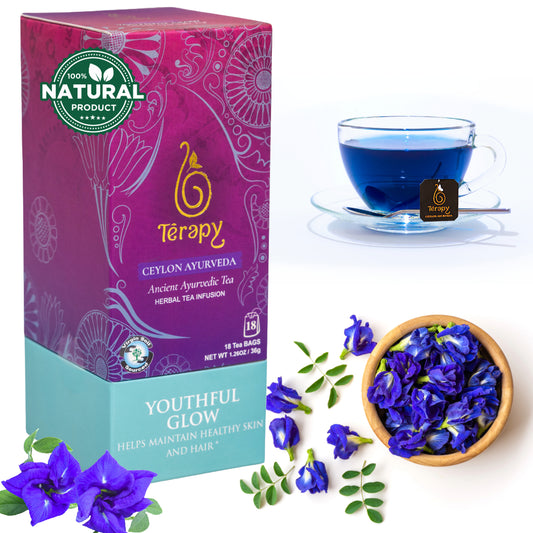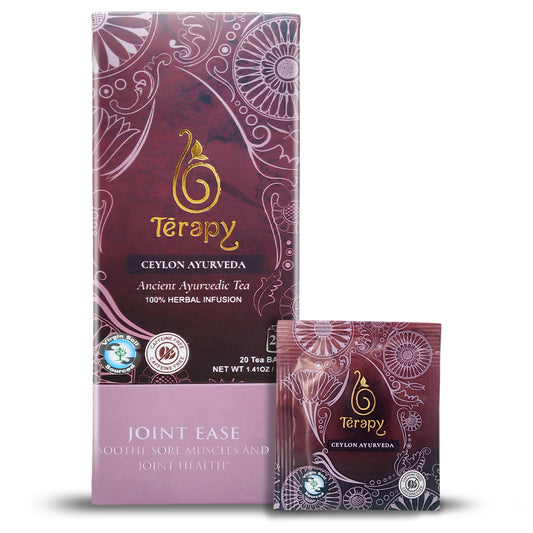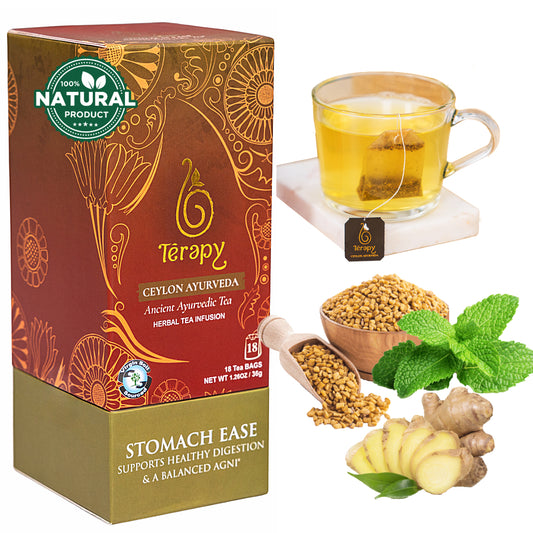Peppermint
Peppermint (Mentha × piperita) is a hybrid plant derived from spearmint and watermint, widely known for its refreshing aroma and cooling properties. Used for centuries across various cultures, peppermint is a popular herb in both culinary and medicinal practices. In Ayurveda, peppermint is highly regarded for its ability to balance the body's doshas, especially the Pitta dosha, and to treat a wide range of ailments, from digestive issues to headaches and skin conditions.
What is Peppermint?

Peppermint is a perennial herb known for its aromatic, sharp flavor and is used in a variety of forms, including fresh leaves, dried leaves, essential oils, and teas. It contains active compounds such as menthol, menthone, and rosmarinic acid, which are responsible for its therapeutic effects. In Ayurveda, peppermint is considered a cooling herb that helps to relieve excess heat in the body, particularly when there is an imbalance in the Pitta dosha. It is also valued for its ability to soothe the digestive system, promote relaxation, and support overall wellness.
The Ayurvedic Use of Peppermint
In Ayurvedic medicine, peppermint is considered a potent herb for balancing the body’s internal energies. It is particularly beneficial for those with excess Pitta, as it has cooling properties that help reduce inflammation, heat, and acidity in the body. Some of the key uses of peppermint in Ayurveda include:
- Digestive Health: Peppermint is commonly used to relieve indigestion, bloating, and gas. It helps relax the muscles of the gastrointestinal tract, improving the flow of bile and easing discomfort caused by digestive issues. In Ayurveda, peppermint is often recommended for individuals with poor digestion (Agni) or those suffering from irritable bowel syndrome (IBS).
- Headache Relief: The cooling and soothing properties of peppermint make it an effective remedy for headaches and migraines. Applying peppermint oil to the temples is a traditional Ayurvedic treatment for relieving tension headaches and improving circulation.
- Respiratory Health: Peppermint is beneficial for respiratory conditions such as colds, sinus congestion, and asthma. Its menthol content acts as a natural decongestant, helping to clear the nasal passages and ease breathing.
- Skin Care: Due to its cooling and soothing properties, peppermint is often used in Ayurvedic skincare for conditions like acne, rashes, and itching. It helps to calm inflamed skin and reduces redness, making it a valuable ingredient in topical formulations.
- Anti-inflammatory and Antioxidant Properties: Peppermint contains compounds that reduce inflammation and neutralize harmful free radicals in the body. Its anti-inflammatory effects help relieve conditions like arthritis and muscle pain.
Health Benefits of Peppermint
Peppermint offers numerous health benefits that are supported by scientific research. These benefits align with its traditional uses in Ayurveda, particularly for digestive health, pain relief, and respiratory support. Some of the primary health benefits of peppermint include:
- Digestive Aid: Peppermint is well-known for its ability to soothe the digestive tract. Studies have shown that peppermint oil can alleviate symptoms of IBS, such as bloating, abdominal pain, and discomfort. The menthol in peppermint helps relax the muscles of the intestines, facilitating the smooth movement of food and gas.
- Headache Relief: Clinical studies support the use of peppermint oil for treating tension headaches. A study published in the International Journal of Clinical Practice found that applying diluted peppermint oil to the forehead and temples was effective in reducing headache intensity.
- Respiratory Support: The menthol in peppermint has a natural decongestant effect, making it useful for relieving symptoms of the common cold, sinusitis, and asthma. Peppermint oil has been shown to improve airflow and ease breathing by relaxing the muscles in the respiratory tract.
- Anti-inflammatory Effects: Peppermint contains rosmarinic acid, a compound with potent anti-inflammatory properties. Research has shown that rosmarinic acid can reduce inflammation in conditions like arthritis and allergies, offering relief from joint pain and swelling.
- Skin Health: Topical application of peppermint oil may help alleviate skin irritation, including rashes and acne. A study published in Phytotherapy Research found that peppermint oil exhibited antimicrobial and anti-inflammatory effects, which can improve the appearance and health of the skin.
Practical Uses of Peppermint in Ayurveda

Peppermint is used in various forms in Ayurvedic practices. Some of the most common ways to incorporate peppermint into your wellness routine include:
- Peppermint Tea: One of the easiest ways to enjoy peppermint’s digestive and cooling benefits is by brewing it into a tea. Steeping fresh or dried peppermint leaves in hot water creates a refreshing and soothing beverage that can relieve digestive discomfort and promote relaxation.
- Peppermint Oil: Peppermint essential oil is widely used in Ayurvedic massage and topical applications. It is often diluted with a carrier oil and applied to the skin to relieve headaches, muscle pain, and itching. Peppermint oil can also be used in steam inhalations to clear nasal congestion and ease respiratory issues.
- Peppermint Powder: The powdered form of peppermint can be used in Ayurvedic formulations like Churna (herbal powders) to support digestion, reduce nausea, and promote cooling in the body.
- Ayurvedic Formulas: Peppermint is often combined with other herbs like ginger, cumin, and coriander in Ayurvedic formulations to treat various digestive and respiratory conditions. It can be found in preparations like Churna (herbal powders) and Vati (tablets).
Conclusion: The Therapeutic Benefits of Peppermint in Ayurveda
Peppermint is a highly valued herb in Ayurvedic medicine due to its cooling, anti-inflammatory, and digestive properties. It is particularly beneficial for balancing Pitta dosha, soothing the digestive system, relieving headaches, and promoting skin and respiratory health. Whether consumed as tea, used topically as oil, or included in Ayurvedic formulations, peppermint continues to play a vital role in natural healing practices. With its versatility and numerous health benefits, peppermint remains one of the most popular herbs in Ayurveda for promoting overall well-being.
Try Our Terapy Ceylon Peppermint Teas
References:
- [1] Ali, B. H., et al. (2008). "Mentha species: A review of their therapeutic potentials and pharmacological effects." Phytotherapy Research, 22(4), 529-537.
- [2] Salehi, B., et al. (2018). "Mentha species in traditional medicine: From ethnopharmacology to the treatment of common diseases." Frontiers in Pharmacology, 9, 1012.
- [3] Öztürk, Y., et al. (2016). "The effects of peppermint oil on irritable bowel syndrome: A systematic review and meta-analysis." International Journal of Clinical Practice, 70(10), 936-945.
- [4] Ghosh, S., et al. (2014). "Antimicrobial and anti-inflammatory properties of peppermint (Mentha piperita) oil in skin health." Phytotherapy Research, 28(3), 461-468.
Featured collection
-

Youthful Glow Tea
SaleYouthful Glow Tea
Regular price From $17.99Regular priceUnit price / per$19.99Sale price From $17.99Sale -

Slimming Garcinia Tea
SaleSlimming Garcinia Tea
Regular price From $17.99Regular priceUnit price / per$19.99Sale price From $17.99Sale -

Joint Ease Tea
SaleJoint Ease Tea
Regular price From $14.99Regular priceUnit price / per$17.99Sale price From $14.99Sale -

Stomach Ease Tea
SaleStomach Ease Tea
Regular price From $15.99Regular priceUnit price / per$17.99Sale price From $15.99Sale






